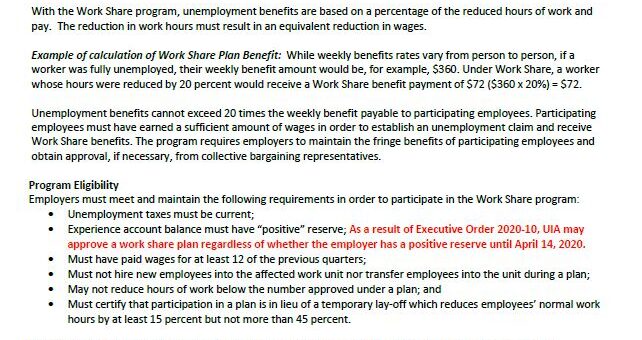Determine a reasonable salary for a corporate business owner
- ByPolk & Associates
- Mar, 19, 2020
- All News & Information
- Comments Off on Determine a reasonable salary for a corporate business owner
If you’re a C corporation owner, you probably know there’s a tax advantage to taking money out as compensation rather than as dividends. The reason: A corporation can deduct executive salaries and bonuses, but not dividend payments. So funds withdrawn as dividends are taxed twice, once to the corporation and once to the recipient. Compensation is taxed only once to the employee who receives it. However, there’s a limit on how much money you can take out as compensation. Compensation can be deducted only to the extent that it’s reasonable. Any unreasonable amount isn’t deductible and, if paid to a shareholder, may be taxed as a dividend. Contact us for help determining a reasonable salary.
Small business owners still have time to set up a SEP plan for last year
- ByPolk & Associates
- Mar, 19, 2020
- All News & Information
- Comments Off on Small business owners still have time to set up a SEP plan for last year
If you own a business and don’t have a tax-advantaged retirement plan, it’s not too late to establish one and reduce your 2019 tax bill. A Simplified Employee Pension (SEP) can be set up for 2019 as long as you do it before your 2019 income tax return filing deadline. You have until the same deadline to make 2019 contributions and claim a potentially substantial deduction on your 2019 return. Contributions are discretionary and may be as large as $56,000 for 2019 ($57,000 for 2020). SEPs generally are much easier to administer and less expensive than other retirement plans. Contact us with questions and to discuss whether it makes sense for you to set up a SEP for 2019.
Marketing is a game of adjustments
- ByPolk & Associates
- Mar, 19, 2020
- All News & Information
- Comments Off on Marketing is a game of adjustments
Adjusting your marketing strategy shouldn’t be a knee-jerk reaction to a rumor or trend. It needs to be a carefully calculated effort that assesses profitability (not just revenue) and identifies a feasible price point for the products or services in question. Consider each prospect, customer or targeted group as an investment. Estimate your net profit after subtracting production, sales and customer service costs. Think carefully about how much you’ll charge. Setting a low price may attract customers, but it can minimize or even eliminate profit margin. Contact us for help evaluating the profit potential of your marketing initiatives, as well as calculating viable price points.
The 2019 gift tax return deadline is coming up
- ByPolk & Associates
- Mar, 19, 2020
- All News & Information
- Comments Off on The 2019 gift tax return deadline is coming up
If you made large gifts to your children, grandchildren or others in 2019, it’s important to determine whether you’re required to file a gift tax return by April 15 (Oct. 15 if you file for an extension). Generally, you’ll need to file one if you made 2019 gifts that exceeded the $15,000-per-recipient gift tax annual exclusion (unless to your U.S. citizen spouse) and in certain other situations. But sometimes it’s desirable to file a gift tax return even if you aren’t required to. If you’re not sure whether you must (or should) file a 2019 gift tax return, contact us.
What the Senate’s Passage of the Families First Coronavirus Response Act Means for You
- ByPolk & Associates
- Mar, 19, 2020
- All News & Information, COVID-19 Resources
- Comments Off on What the Senate’s Passage of the Families First Coronavirus Response Act Means for You
The bill will become law 15 days after President Trump signs it, which he’s promised to do. Just a few days ago, the House passed the Families First Coronavirus Response Act (FFCRA) and then changed it to make the Senate happy. Today, the Senate passed the revised version without changes. Once President Trump signs this $100 billion […]
SBA to Provide Disaster Assistance Loans for Small Businesses Impacted by Coronavirus (COVID-19)
- ByPolk & Associates
- Mar, 18, 2020
- All News & Information, COVID-19 Resources
- Comments Off on SBA to Provide Disaster Assistance Loans for Small Businesses Impacted by Coronavirus (COVID-19)
WASHINGTON – SBA Administrator Jovita Carranza issued the following statement today in response to the President’s address to the nation: “The President took bold, decisive action to make our 30 million small businesses more resilient to Coronavirus-related economic disruptions. Small businesses are vital economic engines in every community and state, and they have helped make our economy the […]
SBA Updates Criteria on States for Requesting Disaster Assistance Loans for Small Businesses Impacted by Coronavirus (COVID-19)
- ByPolk & Associates
- Mar, 18, 2020
- All News & Information
- Comments Off on SBA Updates Criteria on States for Requesting Disaster Assistance Loans for Small Businesses Impacted by Coronavirus (COVID-19)
WASHINGTON – As part of the Trump Administration’s aggressive, whole-of-government efforts to combat the Coronavirus outbreak (COVID-19) and minimize economic disruption to the nation’s 30 million small businesses, U.S. Small Business Administration Administrator Jovita Carranza issued revised criteria for states or territories seeking an economic injury declaration related to Coronavirus (COVID-19). The relaxed criteria will have two […]
Federal loans aim to help small businesses survive coronavirus slowdown
- ByPolk & Associates
- Mar, 18, 2020
- All News & Information, COVID-19 Resources
- Comments Off on Federal loans aim to help small businesses survive coronavirus slowdown
Washington — Michigan officials are seeking a declaration from the federal government that would make low-interest disaster loans available to the state’s small businesses that are struggling as the coronavirus pandemic slows consumer spending. Gov. Gretchen Whitmer on Monday officially notified the U.S. Small Business Administration that she is seeking an Economic Injury Disaster Loan Declaration for the state, […]
Disaster relief for small business and employees
- ByPolk & Associates
- Mar, 18, 2020
- All News & Information, COVID-19 Resources
- Comments Off on Disaster relief for small business and employees
LANSING, Mich. (WLUC) – Monday, Governor Gretchen Whitmer signed Executive Order 2020-10 to temporarily expand eligibility for unemployment benefits. This executive order is effective immediately and until Tuesday, April 14 at 11:59 p.m. Under the governor’s order, unemployment benefits would be extended to: Workers who have an unanticipated family care responsibility, including those who have childcare […]
An Alternative to Layoffs
- ByPolk & Associates
- Mar, 18, 2020
- All News & Information, COVID-19 Resources
- Comments Off on An Alternative to Layoffs
Polk & AssociatesLarge enough to serve a diverse clientele, yet small enough to maintain a hands-on approach, we are committed to maintaining the highest accounting and ethical standards with continuous education, extensive research resources, and excellent quality control. Polk and Associates is a member of the Michigan Association of Certified Public Accountants, and the American […]






You must be logged in to post a comment.